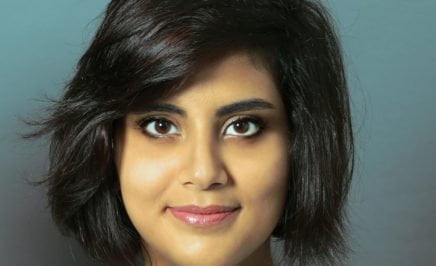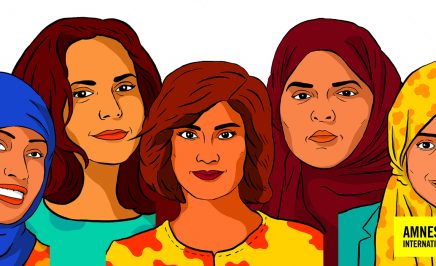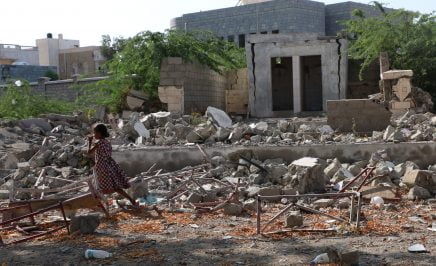With women’s empowerment topping the agenda at today’s B20 Summit, hosted by Saudi Arabia, Amnesty International is reminding business leaders that many of the country’s bravest women’s rights activists are languishing in prison for daring to demand reforms.
Loujain al Hathloul, Nassima al-Sada, Samar Badawi, Maya’a al-Zahrani, and Nouf Abdulaziz spearheaded women’s rights campaigns, including calling for the right to drive and an end to the repressive male guardianship system. But while Saudi Arabia talks up recent reforms such as the relaxation of social restrictions and the loosening of the guardianship system to court approval from the rich and powerful around the B20, women’s rights activists remain in detention.
“Since assuming the G20 Presidency Saudi Arabia has invested heavily in rebranding its image, throwing out slogans about women’s equality and insisting it is ready for change. But Saudi Arabia’s real changemakers are behind bars,” said Lynn Maalouf, Amnesty International’s Deputy Regional Director for the Middle East and North Africa.
“B20 leaders must not be fooled by this shameless hypocrisy, and we call on them to show they care about human rights as much as business opportunities. Any business operating in or with Saudi Arabia has a responsibility to ensure they are not contributing to human rights violations through their activities.”
The B20 is the official forum for business leaders to present policy recommendations to the G20, ahead of the main summit in November. This year high profile participants include representatives from HSBC, Mastercard, PwC, McKinsey, CISCO, ENI, Siemens, Accenture and BBVA.
Cynical PR campaign
Saudi Arabia has publicized the fact that this year, 33 percent of B20 delegates are women – the highest ever contingency. The B20 website states that “Women in Business” will be Saudi Arabia’s “signature topic” as President.
These events are the culmination of an aggressive PR drive under the leadership of Crown Prince Mohammed bin Salman, who has promised equal opportunities as part of Saudi Arabia’s Vision 2030 strategy.
Following the announcement of the Vision 2030 plan, women were granted the right to drive in June 2018. This was a step towards equal employment opportunities, giving women in Saudi Arabia a modicum of freedom and independence. But just weeks before this change was announced authorities launched a crackdown on human rights defenders, arresting many of those who had advocated for the right to drive.
Currently, 13 women’s rights defenders remain on trial facing prosecution for their human rights activism. Several face charges of contacting foreign media or international organizations, including Amnesty International. Some were also accused of “promoting women’s rights” and “calling for the end of the male guardianship system”. Of the 13 women, five remain in detention: Loujain al-Hathloul, Samar Badawi, Nassima al-Sada, Nouf Abdulaziz and Maya’a al-Zahrani.
Saudi Arabian authorities continue to systematically silence dissent and crush freedom of expression, using the Specialized Criminal Court to target economists, teachers, clerics, writers, activists and others who have called for change. Human rights defenders face arbitrary arrest, unfair trials and torture.
Amnesty International is urging business leaders at the B20 not to turn a blind eye to these violations. All businesses have a responsibility to ensure they are not contributing to human rights harm. They are expected to carry out human rights due diligence in order to identify, prevent and mitigate the human rights risks of their activities, and activities within their supply chain and business relationships.
Amnesty International has written to businesses participating in the B20 Summit raising serious concerns about the human rights risks of business operations in and with Saudi Arabia, and reminding them of their human rights responsibilities.
“We urge B20 delegates also to think carefully about how their brands could be legitimizing human rights violations and endorsing Saudi Arabia’s charm offensive,” said Lynn Maalouf.
“If B20 Saudi Arabia was as progressive as it claims, the activists who did so much to secure more rights for women would have a seat at the table.”




